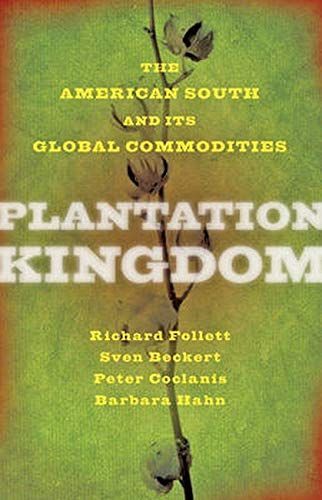
Plantation Kingdom The American South and Its Global Commodities
"Students need to understand how market demand for certain staple crops created plantations and the slave- and then indentured-labor system, and this book explains it. The third entry in the Cunliffe Series, it examines the cultivation of American tobacco, rice, sugar, and cotton in the context of global economic developments, from the late colonial period through the late nineteenth century. Domestic and foreign demand for these commodities greatly enriched the owners of land and labor (or those who controlled 'free' labor), bringing the grandees prestige and political power. But of course these markets could take away as well as give, so fluctuating demand and over-production often wreaked havoc on the Southern economy--affecting the well-being even of people not directly involved in staple-crop agriculture. So were these crops an advantage or something else? How could even the best of intentions improve race relations when so many whites found themselves caught in the staple-crop net? One lesson this book teaches may be the practical limits on human agency"--